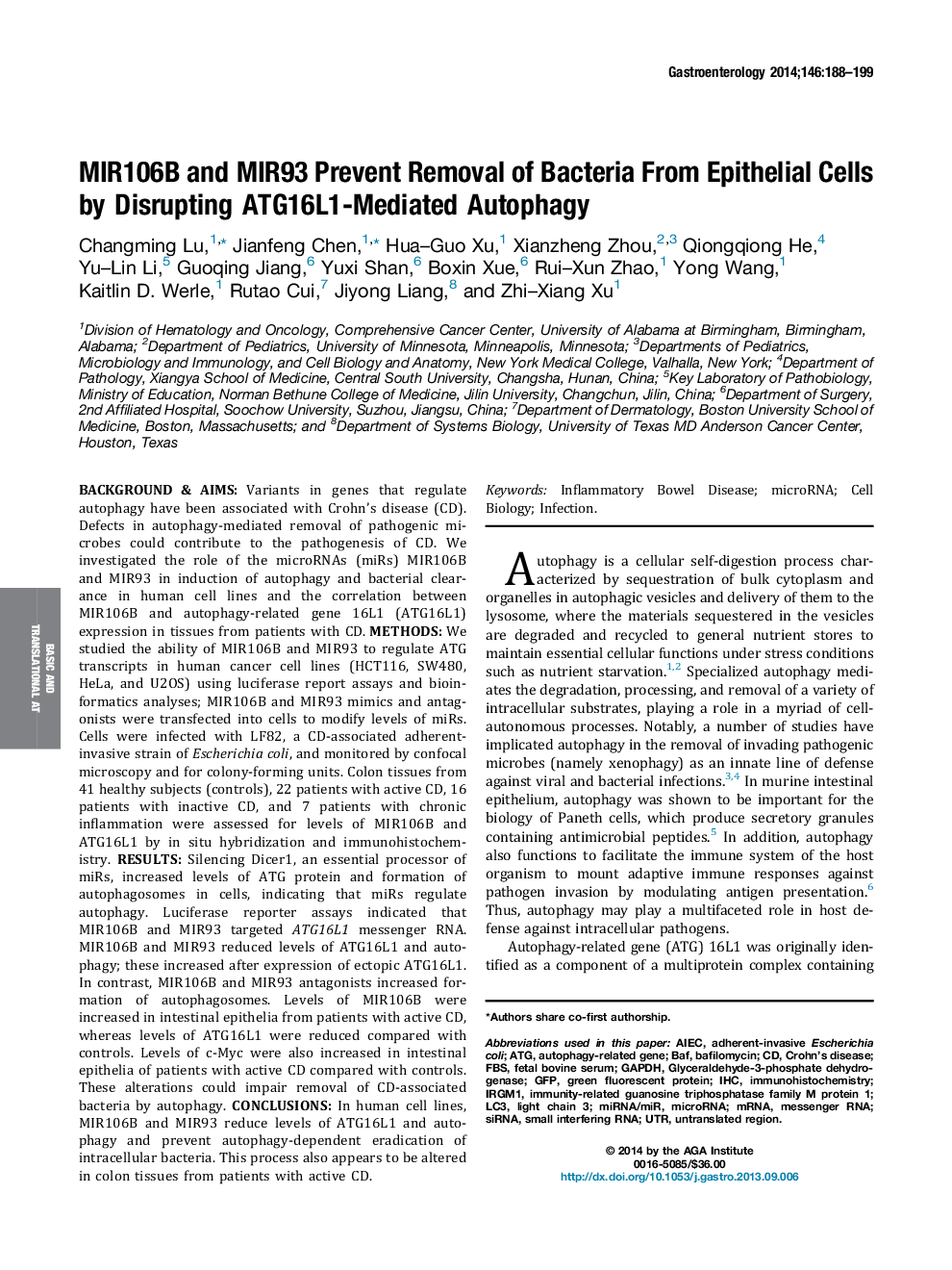| Article ID | Journal | Published Year | Pages | File Type |
|---|---|---|---|---|
| 3292838 | Gastroenterology | 2014 | 12 Pages |
Background & AimsVariants in genes that regulate autophagy have been associated with Crohn's disease (CD). Defects in autophagy-mediated removal of pathogenic microbes could contribute to the pathogenesis of CD. We investigated the role of the microRNAs (miRs) MIR106B and MIR93 in induction of autophagy and bacterial clearance in human cell lines and the correlation between MIR106B and autophagy-related gene 16L1 (ATG16L1) expression in tissues from patients with CD.MethodsWe studied the ability of MIR106B and MIR93 to regulate ATG transcripts in human cancer cell lines (HCT116, SW480, HeLa, and U2OS) using luciferase report assays and bioinformatics analyses; MIR106B and MIR93 mimics and antagonists were transfected into cells to modify levels of miRs. Cells were infected with LF82, a CD-associated adherent-invasive strain of Escherichia coli, and monitored by confocal microscopy and for colony-forming units. Colon tissues from 41 healthy subjects (controls), 22 patients with active CD, 16 patients with inactive CD, and 7 patients with chronic inflammation were assessed for levels of MIR106B and ATG16L1 by in situ hybridization and immunohistochemistry.ResultsSilencing Dicer1, an essential processor of miRs, increased levels of ATG protein and formation of autophagosomes in cells, indicating that miRs regulate autophagy. Luciferase reporter assays indicated that MIR106B and MIR93 targeted ATG16L1 messenger RNA. MIR106B and MIR93 reduced levels of ATG16L1 and autophagy; these increased after expression of ectopic ATG16L1. In contrast, MIR106B and MIR93 antagonists increased formation of autophagosomes. Levels of MIR106B were increased in intestinal epithelia from patients with active CD, whereas levels of ATG16L1 were reduced compared with controls. Levels of c-Myc were also increased in intestinal epithelia of patients with active CD compared with controls. These alterations could impair removal of CD-associated bacteria by autophagy.ConclusionsIn human cell lines, MIR106B and MIR93 reduce levels of ATG16L1 and autophagy and prevent autophagy-dependent eradication of intracellular bacteria. This process also appears to be altered in colon tissues from patients with active CD.
